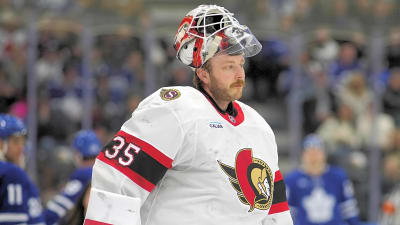EARLY EIGHTIES CLASSICS- RAPID VIENNA v CELTIC. Part 1 of 3…
In Season 1984/85, Celtic’s participation in the European Cup Winners’ Cup would prove to be arguably the most controversial in their long and illustrious history in European football. It would ultimately result in elimination at the hands of Rapid Vienna after three dramatic and incident-packed matches. It would also leave Celtic fans with a lingering sense of injustice, fury and bitter resentment towards both Rapid and UEFA.
The competition started mundanely enough with a First Round tie against KAA Ghent of Belgium, Celtic’s first time playing against opposition from that country. The first leg was away and Celtic looked sure to get a goalless draw. Indeed, they created a few chances of their own. Yet again, however, Celtic again lost concentration near the end of the match and were punished by a goal by Hubert Cordiez. Peter Grant was singled out for praise in what was his first appearance in European competition.
Celtic won the return leg 3-0, a scoreline which belies what was a nervous and uncomfortable evening for Celtic fans. In a performance more notable for perspiration than inspiration, Celtic eventually levelled the tie on aggregate after 40 minutes with a goal from Frank McGarvey. He added a second after 61 minutes to put Celtic 2-1 ahead on aggregate. Both goals were typical of the type of opportunistic goals in which McGarvey specialised.
Ghent now needed to score only once to go through on the away goal and the remainder of the match was a tense and nervous watch for Celtic fans. They were finally able to relax in the final minute of the game when Paul McStay scored with a rare headed goal after a fine cross from Provan.
The real drama began in the next round when Celtic were drawn to play Rapid Vienna. At the time, no one could have predicted how events would unfold in the three matches which followed. To this day, Celtic fans old enough to remember are still filled with a sense of rage at the injustice of it all.
The first leg in Vienna showed signs of Rapid’s cynical and physical approach. In the return leg in Glasgow, the Austrians displayed gamesmanship and play-acting at its very worst, accompanied by some violent and ill-disciplined tackles. Finally, in the deciding match at Old Trafford, Rapid showed that they were actually a highly skilled footballing side who should have had no need to resort to the underhand tactics used in the previous matches.
In 1984, Rapid Vienna were a very decent side. In the previous season, they had competed in the European Cup, reaching the quarter finals before being eliminated by Dundee United on away goals. They also had two truly top-class players in Antonin Panenka and Hans Krankl. The former was 35 at the time of the matches with Celtic but was still a very gifted midfielder. Panenka won the European Championship for Czechoslovakia in 1976 with a softly-chipped penalty which was later named after him.
Hans Krankl sprung to prominence playing for Austria in the 1978 World Cup Finals, when he scored the winning goal in a 3-2 win over West Germany. This earned Austria their first win over West Germany in 47 years and secured legendary status for Krankl in Austria. Rapid had several other highly skilled players and it was clear that Celtic faced formidable opponents.
Like Celtic, Rapid played in green and white but their jerseys were striped rather than hooped. As the away team in the first leg, Celtic would normally have worn their lime green away top but it was declared that this was also too similar to Rapid’s jersey. As a result, in the first leg in Vienna, Celtic played in a yellow jersey created specially for the match, worn with green shorts and green socks. This yellow jersey is now extremely rare as so few were made.
In footballing terms, Celtic knew they would face a tough time. What was quite unexpected was the general air of hostility towards the visitors, which was apparent even before the match started. In Dreams and Songs to Sing by Tom Campbell and Pat Woods, Davie Provan recalled, “I got the impression that they didn’t like the Scots for some reason. I was hassled by one really aggressive official as I went out to inspect the pitch. It was a pretty tense situation, believe me.”
In Graham McColl’s book Celtic in Europe, Peter Grant also tells of his father and sister having their hair pulled and being spat upon by the Austrians sitting next to them. There were only 350 Celtic fans in the 16000 crowd, and some of them gave similar anecdotal accounts of the provocative behaviour of the Rapid fans, and of the unwillingness of the Vienna police to intervene.
The nasty and bad-tempered atmosphere continued throughout the entire match. After only 5 minutes, Frank McGarvey was on the receiving end of a violent, dangerous tackle by Reinard Kienast, a man whose name would feature prominently in the return leg. McGarvey had been injured in the wild challenge and was effectively taken out of the game. He was replaced by Alan McInally after 34 minutes.
In between the robust tackles and the ill-tempered exchanges, both teams played some decent football. Celtic created a couple of scoring chances but Rapid certainly had much the better of the first half, creating several chances which weren’t taken. Celtic’s defence was under sustained pressure but the first 45 minutes ended goalless.
The second half started with another violent tackle by Kienast, this time on McInally. Then followed a period of free-flowing football from both sides which produced three great goals. Rapid opened the scoring after 53 minutes with a superb goal from Austrian international Peter Pacult.
Collecting the ball just inside the Celtic half, Pacult ran more than 30 yards, evaded two Celtic defenders and slammed a powerful shot past Bonner. Four minutes later, Celtic equalised with a well-worked goal from one of their few chances. Brian McClair was sent clear after clever play by McStay and McInally. He finished the move with a cool controlled finish from 15 yards and grabbed Celtic a vital away goal.
Rapid continued to set the pace and regained the lead after 66 minutes when Leo Lainer, unmarked and unchallenged in the Celtic box, cleverly headed a Paneneka free kick past Bonner. Then, ten minutes later, Alan McInally was sent off for an innocuous looking foul, his first of the match. It was a very poor decision by the referee. At worst McInally’s challenge was a late shoulder charge and at best it was a nudge. It may have merited- at most- a yellow card. However, the victim, Pregesbauer, collapsed to the ground clutching his shin, with which McInally had made no contact whatsoever.
Sadly, this feigning of injury by the Austrians was a foretaste of what was to come in the second leg. The Bulgarian referee, in one of many decisions which appeared to favour Rapid, sent off McInally and left Celtic to face the remainder of the match with ten men. Three minutes from the end, Krankl added a stunning third goal after being skillfully set up by the Yugoslavian international Zlatko Kranjcar.
“It was an astonishing and controversial match,” said Alan Davidson of the Evening Times. In footballing terms, it was packed with drama and excitement- four excellent goals, several good chances and high-quality play, especially by Rapid. Less pleasantly, it was characterised by some extremely aggressive and physical play (mainly) on the part of the Austrians, two vicious assaults by Reinhard Kienast, the booking of three Celtic players, Alan McInally’s sending off, and by a series of debatable refereeing decisions. Sadly, all these tensions, simmering throughout the match in Vienna, would boil over in Glasgow in the second leg.
In the first leg, Rapid had played very well and thoroughly deserved their win. They had also shown themselves to be a team with a split personality. On the one hand, they were a very good attacking side with real creative skill. On the other, they had hard cynical edge, marrying physical aggression with some seriously underhand tactics and sly gamesmanship.
After losing 1-3, Celtic had left themselves with a difficult job. However, Brian McClair’s goal had kept the tie alive and gave Celtic a chance in the return match. A 2-0 victory at Celtic Park would see Celtic eliminate Rapid on the away goal. It would take a huge performance, but Celtic had shown enough in the first leg to suggest that the task was not beyond them…
James McDevitt
Celtic in the Eighties by David Potter, signed copies by Danny McGrain available from celticstarbooks.com
Don’t miss the chance to purchase the late, great Celtic historian David Potter’s final book. All remaining copies have been signed by the legendary Celtic captain Danny McGrain PLUS you’ll also receive a FREE copy of David Potter’s Willie Fernie biography – Putting on the Style, and you’ll only be charged for postage on one book. Order from Celtic Star Books HERE.
More must-reads:
- Manchester United owes derby victory to regression, not revival
- Yankees have no choice but to bring Cody Bellinger back
- The 'College Football Player of the Year' quiz
Breaking News
Trending News
Customize Your Newsletter
 +
+
Get the latest news and rumors, customized to your favorite sports and teams. Emailed daily. Always free!








